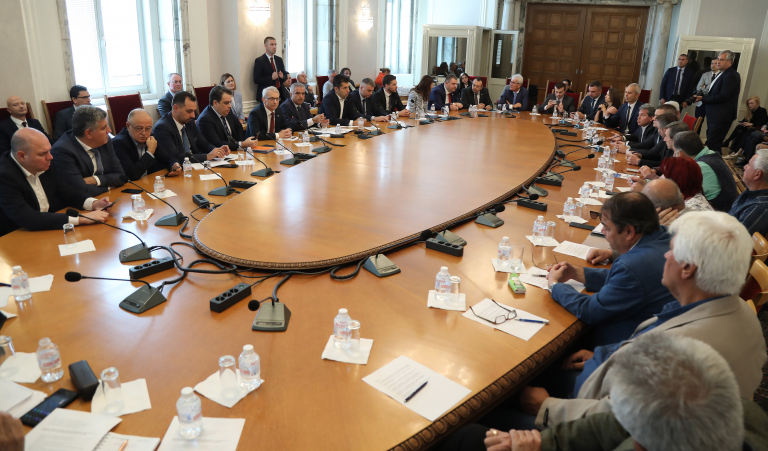
03.10.2023
A seven-point agreement with concrete time limits for completion was signed today by the Prime Minister, cabinet ministers, leaders of the parties that support the cabinet and the protesting energy sector workers. The mining unions of the two confederations asked for time to discuss the document with their members.
Such was the outcome of the seven-hour long negotiations that were conducted in the National Assembly today. The text of the document will be submitted to Parliament tomorrow and voted as a decision to make it clear that the commitment is made by the government but also by the parties that back it. If the opposition groups in Parliament decide, they can join.
The cabinet will not close down thermal power plants in an administrative manner. This is what the first two points of the agreement are about, Prime Minister Acad. Nikolai Denkov explained. “These power plants, whether public or private, will operate freely and the market will decide which are viable,” he added. Moreover, baseload capacities that guarantee the stability of the national power grid will be conserved so as to avoid problems with electricity supply to the businesses and to the households.
The cabinet made the commitment that by the end of this November a project would be designed for Bulgaria’s energy strategy until 2030 and beyond, until 2050. The social partners will join the drafting process. This will go in parallel with the update of the Integrated Energy and Climate Plan.
The cabinet makes the commitment to ensure full transparency of the selection of the future investors in the coalmining regions and to let the power plants, the coalmines and the communities that the projects concern join the selection process. A committee will be set up to monitor the process and the social partners, the regional divisions included, the coalmines and the afflicted communities will sit on this committee.
Following a protesters’ request, the idea to establish a state-owned enterprise tasked with the preparation of the lands in the coalmining regions for another business was abandoned. In fact, this request was put into the territorial plans, as it was a proposition of one of the two principal trade unions.
The possibility for capturing, processing and storing CO2 emissions for TPP Maritsa East 2 will be explored.
The social partners agreed to continue the negotiation on the draft agreement that they received on 19 September except for one point from it.
Today’s negotiations are a restart of the discussion of the territorial plans for Stara Zagora, Pernik and Kyustendil that began long before the territorial plans were approved by the cabinet and submitted to Brussels, the Prime Minister recalled. He personally had three meetings with the leaderships of the trade unions, apart from the talks of the Ministers and Deputy Ministers of Energy and of Regional Development and Public Works, and the onsite discussions in the regions. At the same time, today’s negotiations are the start of a far more detailed discussion that is to be held before the end of this November, the Prime Minister said.
“We are doing what is best for the people and for the country and we are doing it in line with the European rules,” Acad. Nikolai Denkov noted. He said firmly that coal-fired power plants in the shape that they are could not keep operating until 2038. That is why, in the next 15 years Bulgaria must make a smooth transition, in compliance with the regulations of the European Union. This might be done by a discussion with all parties concerned. “Decisions can materialize only when we take them together. This is why I appeal for dialog all the time. We should not waste time in unneeded disputes as each day makes shorter the timespan for doing things in the right way,” the Prime Minister explained.